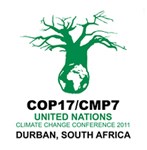
Top stories






More news


ESG & Sustainability
Redisa calls on govt to fix South Africa’s “broken” waste management system



























While there's little doubt that today's advanced technologies can transform social, industrial and business processes to effect the changes needed to achieve sustainability, the potential of ICTs to make a real difference is still far from being understood and embraced by environmental lobby groups and policymakers.
ITU and its partners will be using COP17 to promote ICTs as the 21st century's most valuable problem-solving tools that - ITU says - should be included as an integral part of global climate change policy. To this end, ITU and the Global e-Sustainability Initiative (GeSI) have initiated the Global Coalition on ICT and Climate Change to send a coordinated message to the 2011 UN Climate Change Conference, saying that ICTs such as smart grids, intelligent transport systems and the 'internet of things' have extraordinary potential to reduce the greenhouse gas (GHG) emissions of high energy-consuming industry sectors.
"It is imperative that our massively inter-connected world also becomes a greener, more sustainable world. 'Smart' technologies will help to bridge the digital divide and improve the lives of millions - billions, even - of people," Dr Hamadoun Touré, ITU secretary general, told Gadget. "Look at the benefits which can be achieved with intelligent transport systems, or through the digitisation of goods, processes and services. We need to move now to take advantage of the powerful tools already in our hands."
Read the full article on www.gadget.co.za.
For more on the ITU, go to http://www.itu.int/en/Pages/default.aspx.